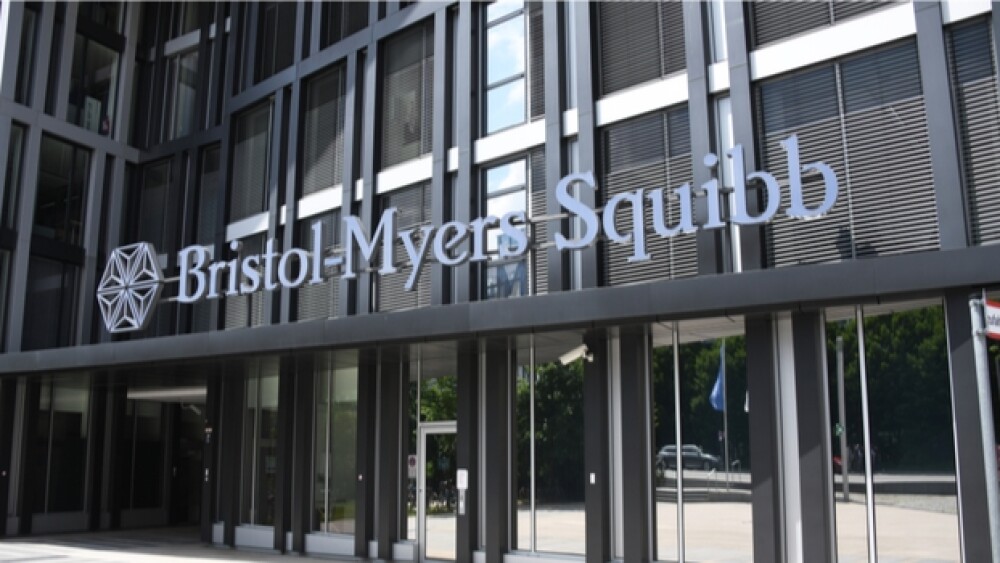Bristol Myers Squibb released new data from two clinical trials of Opdivo plus Yervoy-based combinations in non-small cell lung cancer and updated results from the KarMMa trial of ide-cel for multiple myeloma being developed with bluebird bio.
nitpicker / Shutterstock
Bristol Myers Squibb released new data from two clinical trials of Opdivo plus Yervoy-based combinations in non-small cell lung cancer (NSCLC) and updated results from the KarMMa trial of ide-cel for multiple myeloma being developed with bluebird bio.
For Part 1 of the Phase III CheckMate -227 clinical trial, the company announced three-year follow-up data showing that Opdivo (nivolumab) plus Yervoy (ipilimumab) gave sustained improvements in overall survival (OS) as well as additional efficacy measures as a first-line treatments for metastatic NSCLC. The median follow-up was more than three years—43.1 months—and the combination showed a survival benefit compared to chemotherapy in patients expressing PD-L1 greater than 1%. The three-year OS rates in this population was 33% for the combination compared to 22% for chemotherapy alone.
“We now have long-term overall survival results for Opdivo plus Yervoy in Phase III trials across three tumor types—advanced non-small cell lung cancer, melanoma and renal cell carcinoma—as well as positive data from a pivotal trial in first-line mesothelioma and a second trial in first-line non-small cell lung cancer,” said Nick Botwood, vice president, Oncology Clinical Development, Bristol Myers Squibb.
In the Phase III CheckMate -9LA trial, the company presented first results showing a statistically significant and clinically meaningful survival benefit with Opdivo plus Yervoy, given concomitantly with two cycles of chemotherapy for first-line metastatic NSCLC. The trial met both its primary and key secondary endpoints, showing superior OS, progression-free survival (PFS) and overall response rate (ORR) for the dual immunotherapy plus chemotherapy compared to chemotherapy alone.
“The nivolumab plus ipilmumab combination has been shown to increase survival in patients with first-line non-small cell lung cancer, and adding a limited course of chemotherapy may help mitigate the risk of early disease progression,” said Martin Reck, CheckMate -9LA study investigator, Lung Clinic Grosshansdorf, German Center of Lung Research.
For the Phase II KarMMa trial, the two companies presented updated results in patients with relapsed and refractory multiple myeloma (r/r MM). In the trial, 128 patients with heavily pretreated r/r MM who were exposed to at least three previous therapies and were refractory to their last regimen were treated with ide-cel. The overall response rate (ORR) was 73% across all dose levels, including 33% who had a complete response (CR) or stringent CR (sCR). Median duration of response (DoR) was 10.7 months, with 19.0 month median DoR for patients who had a CR or sCR.
Ide-cel is a B-cell maturation antigen (BCMA)-directed genetically modified autologous chimeric antigen receptor (CAR) T-cell immunotherapy.
“Patients in the KarMMa study reflect a very advanced and highly refractory population, so it is particularly gratifying that the results announced today from the pivotal KarMMa study, demonstrating deep and durable responses, underscore the potential of ide-cel as a meaningful new treatment option for these patients,” said David Davidson, chief medical officer of bluebird bio. “bluebird bio, together with our partners at Bristol Myers Squibb, understands the urgency to deliver new therapeutic options for patients living with relapsed and refractory multiple myeloma, and we are committed to bringing this potentially first-in-class BCMA-directed CAR-T-cell therapy to patients in need.”





